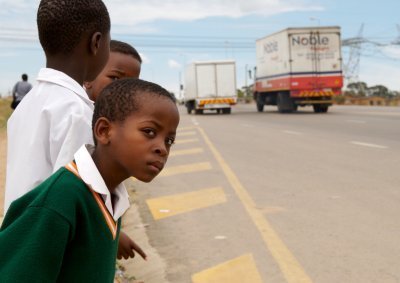Poor in Most Peril on South Africa Roads

In a Rospa policy paper, 'Social Factors in Road Safety', the agency looks at where people live, how much money they have and their family circumstances and how these affect the odds of them being involved in a road incident.
Causal link established
The report showed how exposure to danger was a factor that varied significantly between socio-economic groups. Children in families in the lowest income bracket crossed 50% more roads than those from the highest income bracket. Poor children are also more likely to play in the street or live in areas where the capacity to re-engineer streets to improve road safety is limited.
The research also revealed the number of deaths per 100 000 children whose parents had been unemployed for a long time or had never worked was 20.6 times higher for pedestrians, 5.5 times higher for car occupants and 27.5 times higher for cyclists when compared to the children of higher earners.
Furthermore, the report demonstrated how a lack of money could affect road safety; while experts advise on regular car servicing and the replacement of worn tyres, the poor simply cannot afford to do so.
Also, newer vehicles with improved safety features remained unaffordable to many.
The report also examined the role of family structures in road safety and found children in single-parent and large families were more at risk.
'Everybody's priorities'
Duncan Vernon, road safety manager at Rospa, said: “Our report clearly demonstrates a wide range of social factors that affect road safety and efforts to reduce casualties. Building road safety into every body's priorities and policies is an inescapable step to reduce the inequalities in injury.
“Road safety is a public health issue and a greater integration between road safety and public health at all levels would help to create safer and healthier environments.
“There are more professions and sections of local government that could be engaged to ensure road safety is part of their policy process. A project in New York, for example, brought together 26 organizations to ensure children had safe, accessible places to play and involved them in activities alongside more traditional safety education.”


